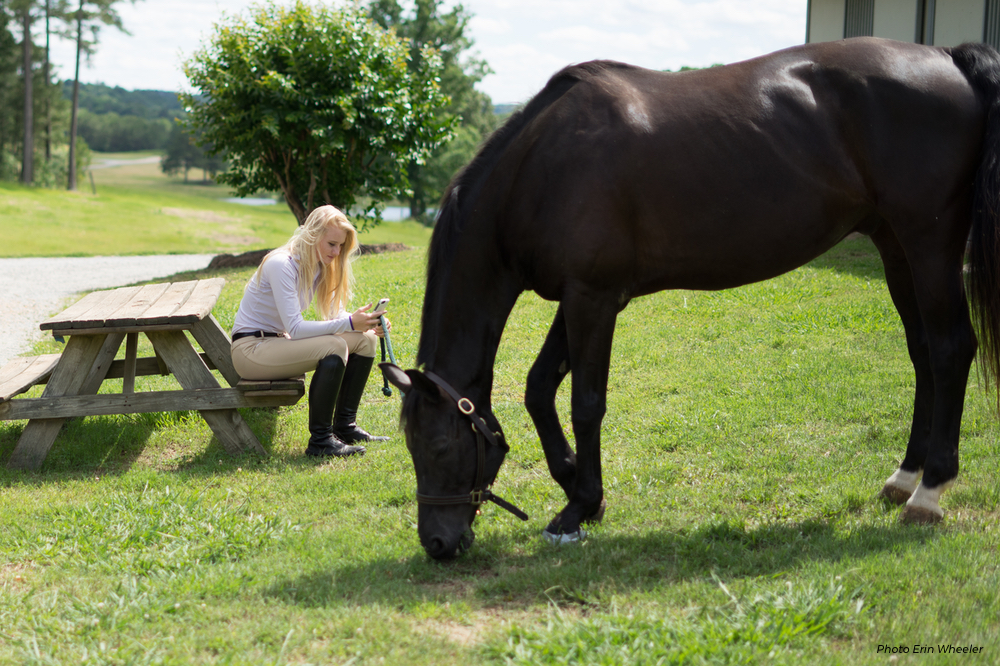4 Things Your Vet Wished You Wouldn’t Do

It’s not uncommon for my local vet to receive anywhere from 50 to 100 texts and 30 phone calls a day.
It’s just part of the job of being an equine veterinarian. Unlike small animal vets, where it’s normal practice for clients to call the office to make appointments or seek vet advice, equine vets routinely give out their personal cell numbers.
In the case of small animals – like dogs and cats – it’s pretty widely accepted that in case of an emergency, an owner would take their pet to an emergency facility. But that doesn’t typically exist in equine medicine. There are some surgical centers, but those could be hours away for some. That means your everyday vet can be the 24/7/365 lifeline for your horse.
Needless to say, that keeps a lot of vets busy.
Heels Down Mag canvased a few of our favorite equine vets to find out what they wished horse owners wouldn’t do – in an effort to help the horses and take advantage of the best use of their precious time. Here’s the advice they offered.
Stop Googling
One vet described the Internet as a “beautiful and scary thing,” and they aren’t wrong. With access to so much information at our fingertips, it’s tempting to Google a problem – like a horse health issue – when it arises.
On one hand, the Internet is great because it helps horse owners learn more about common issues and injuries. That knowledge and understanding can expedite explaining various treatment options. But not all sources are created equally. There’s a lot of bad information out there, or not validated by science and research.
For example, it’s easy to read about someone’s personal, anecdotal experience with a product or issue on a blog. But those opinions are merely that – opinions, and usually are not backed up by science or research. Most vets caution their clients to look for credible sources – like cited medical journal articles with clinical research, or read articles by authors who have some credibility in the field.
One great tip we leaned from a vet is “to the search for information, not a diagnosis.” You can come up with cancer when really, you might just be dealing with a skin tag.
Cats, Dogs And Horses Are Not The Same
Just because a specific treatment protocol or medication helped clear up a similar problem in a dog or cat does not mean it will work the same way with a horse.
For example, acetaminophen can be toxic to animals and have fatal consequences even though it’s fairly common to use among humans for minor problems. Another example is dosages – a dog can take four times the amount of some drugs than a horse would, regardless of the obvious weight difference.
Drugs are dosed based on how the animal metabolizes it, and it can be dangerous to make assumptions.
The same dosing rules apply to antibiotics. Horses can become resistant to medications when they’re given doses for less than the required time or at higher levels than prescribed.
Not all antibiotics work equally, and they are used to treat different medical conditions. Just because you have some laying around the barn doesn’t mean a fungus will respond to it. That’s how we get to the point where antibiotics don’t work at all.
Don’t Buy Into Trendy Products
Another vet told us they like to remind their clients often that supplements may have flashy marketing, but they aren’t always backed by research or science to prove their efficacy. Third party, independent trials are the gold standard, but not all companies pay for that kind of expensive research.
Before trying out any new product, a good rule of thumb is ask your vet about it first.
The same advice applies for homemade creams and combos used on horses.
People combine a little of this and a little of that, mixing them together on a wound because they know those ingredients on their own can be beneficial, but too much of a good thing isn’t always a good thing. Compounding creates a whole new medication or product – one vet told us, which can lead to burns or other problems.
Be Prepared
When you schedule an appointment with your vet, you should be ready for the vet on that day and time.
Most vets really appreciate it when clients are waiting for them and the horse is already in a stall or paddock. The horse doesn’t have to be show ready, but it’s a plus if he’s not caked in mud right before an exam.
Another good suggestion is coming armed with all the information your vet will need to treat the horse, including his past medical history and a good summary of the current medical problem.
Your vet might only have an hour allocated for the farm visit, so being organized and efficient will decrease the chance of needing to schedule a secondary visit. This is good advice for any vet appointment, but especially with a lameness evaluation. Those can be very time consuming.


